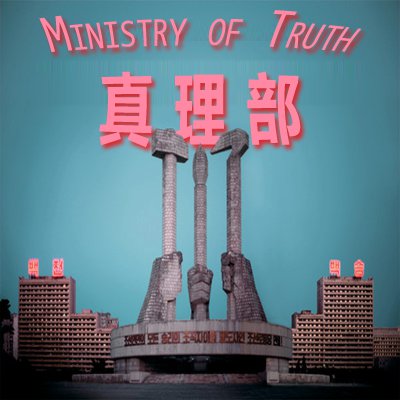The following censorship instructions, issued to the media by government authorities, have been leaked and distributed online. The name of the issuing body has been omitted to protect the source.
Urgent notice: In response to the “anti three-vulgarity” inspection into the Wang Baoqiang incident, do not hype related people or events. (August 17, 2016) [Chinese]
On August 14, migrant-worker-turned-actor Wang Baoqiang accused his wife, Ma Rong, of an affair with his agent, Song Zhe. Wang, who posted the accusation on Weibo, filed for divorce the next day. The scandal has captured the attention of Chinese web users, as the South China Morning Post’s Alice Yan reports:
[…T]he attention given to Wang’s claim far exceeds the usual amount given to celebrity break-ups. The hashtag #WangBaoQiangDivorce on Weibo has been viewed more than 7.9 billion times. Even the financial channel of China Central Television got into the saga, inviting experts to talk about how assets might be split after the divorce.
[…] Some people have commented that marriages can be vulnerable if the partners are not matched in status, appearance and education.
Wang, 32, was born into a poor rural family in Hebei province and received limited schooling. He learned martial arts at age six, and went on to play roles as extras in films before rising to fame in director Feng Xiaogang’s movie A World Without Thieves in 2004 starring Hong Kong’s Andy Lau Tak-wah.
[…] Ma said on her microblog on Sunday that “the more one tries to hide, the more one is exposed”. She also hinted she would release evidence damaging to Wang when the time was right.
Zhan Jiang, a professor at the School of International Journalism and Communication of Beijing Foreign Studies University, said the public attention paid to Wang’s divorce story was related to “the government’s control over the media”. [Source]
On Tuesday, Ma sued Wang for defamation, and on Wednesday Song’s wife filed for divorce. At the Los Angeles Times, Jonathan Kaiman reports further on the debate surrounding gender and divorce that the scandal has stirred up online:
On Monday, Wang’s company wrote on Weibo that Wang had borrowed money to fund his divorce case, sparking speculation in the Chinese media that Ma and Song had absconded with his wealth. Internet users struck out at Ma, posting a string of vitriolic comments to her Weibo page. Some users even tracked down her address and ID card number and posted them online.
[…] Chinese media have referred to Wang as a “grassroots star,” and his down-home appeal might partly explain the overwhelming sympathy.
Yet some observers have seen it as a symptom of unfair gender relations in the country.
“It’s a double standard,” Lü Pin, the editor in chief at Gender Watch, a feminist activist website, told the Chinese news website Phoenix News. “Society is particularly intolerant towards women cheating on their husbands. We always find a reason, or an excuse, for men cheating. More often we’ll forgive men, and give [them] a second chance.”
[…] Many Internet users have helped donate money to abet Wang’s divorce — enough that swindlers have piggybacked on the scandal for financial gain. Some have composed text messages in Wang’s name to solicit donations, according to an article in the Henan Legal Evening News. One victim, a villager, reportedly transferred 5,000 yuan ($750) to a swindler’s account. [Source]
At Women of China, which is run by the All-China Women’s Federation, an NGO with close ties to the CCP, Hewater Liu notes commentary from a media expert, who called for an end to netizens’ online judgement:
[…] Yu Guoming, deputy dean of the School of Journalism and Communication at the Renmin University of China, said he sees interest in the topic from a broader perspective.
“The topic offers the Chinese almost unchecked freedom to discuss and dig into whatever details they are interested, in contrast with sensitive political topics,” Yu told the Global Times, adding that people needs to have fun as well because of the tremendous pressure amid the country’s continuing economic downturn.
But the issue was largely ignored by mainstream media.
The divorce case has evolved into such a dramatic story, including financial conspiracy and unfaithfulness angles, that mainstream media’s coverage would have made it too serious, Yu said.
Nevertheless, Dong called on the mainstream media to end the netizens’ obsession with the topic. “Since the court has received the case, Net users should stop acting as judge and jury,” Dong said, adding that public pressure will undermine the authority of the law if the hearing fails to conform to their expectations. [Source]
The story of the scandal, widely-discussed and circulated by social media, is off-limits to mainstream news coverage following a recently announced rule against sourcing stories from social media from central authorities.







